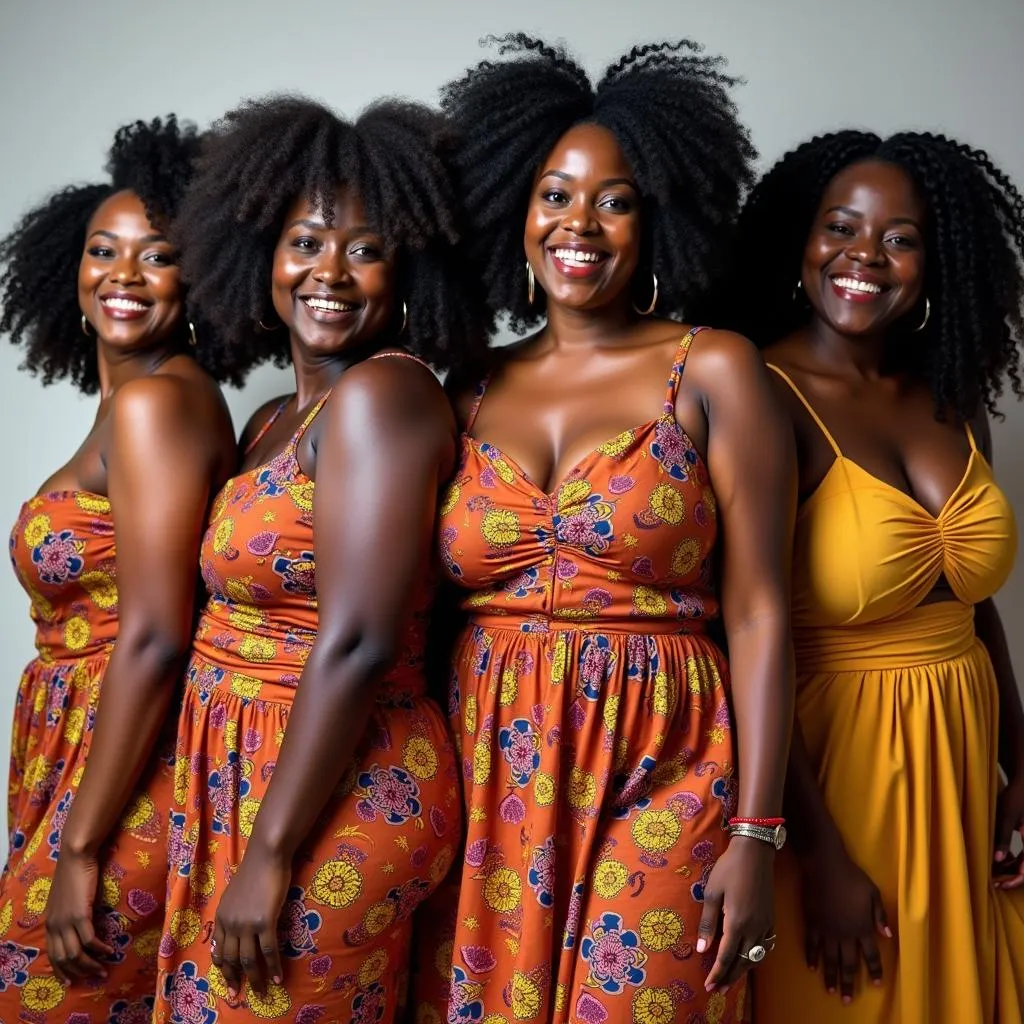Understanding African American Babies Skin Color at Birth
African American Babies Skin Color At Birth can vary significantly, a fascinating aspect of human genetics and melanin production. This article delves into the science behind skin color, addressing common questions and misconceptions surrounding the beautiful spectrum of tones present in African American newborns.
The Science Behind Skin Tone Variation
Melanin, the pigment responsible for skin, hair, and eye color, plays a crucial role in determining an infant’s complexion at birth. The amount and type of melanin produced are influenced by genetics, with multiple genes contributing to this complex trait. While all babies, regardless of ethnicity, have melanocytes (melanin-producing cells), the activity level of these cells varies. In African American babies, this variability results in a wide range of skin tones, from light brown to deep ebony.
It’s important to remember that skin color at birth is not necessarily indicative of the child’s eventual adult complexion. A baby’s skin may darken or lighten over the first few years of life as melanin production adjusts to environmental factors like sun exposure.
Factors Influencing Skin Color in African American Newborns
Several factors can influence an African American baby’s skin color at birth:
- Genetics: The primary determinant is the genetic inheritance from both parents. A baby inherits a combination of genes related to melanin production, leading to a unique skin tone.
- Gestational Age: Premature babies often have lighter skin than full-term babies because melanin production increases throughout gestation.
- Maternal Health: Certain maternal health conditions can impact fetal melanin production, potentially affecting the baby’s skin color.
Understanding these factors helps dispel myths surrounding skin color inheritance. For instance, the idea that a darker-skinned parent will always have a darker-skinned child is a simplification of a complex genetic process.
Common Misconceptions about African American Babies Skin Color
Misinformation often surrounds the topic of skin color. One common misconception is that darker skin is “tougher” or less sensitive. This is untrue. All skin types require protection from sun damage, regardless of color. Another myth is that certain skin tones are “better” or more desirable. This perpetuates harmful colorism and has no scientific basis. Every shade of melanin is beautiful and represents the rich diversity within the African diaspora.
Remember, embracing the beauty of all skin tones fosters self-acceptance and celebrates the unique heritage of every individual.
Why Do People Search for Information on African American Babies’ Skin Color?
Parents-to-be, particularly those expecting their first child, often seek information about what to expect. Understanding the range of skin tones within their ethnic group is a natural curiosity. Additionally, some families may be curious about how their baby’s skin tone might relate to their own or their partner’s. African American Baby Cake Toppers or a 3 Month Old African American Baby might be of interest for celebrating this beautiful heritage.
Conclusion: Celebrating the Beauty of Diversity in African American Babies Skin Color
African American babies skin color at birth is a reflection of the beautiful spectrum of human genetic variation. Understanding the science behind melanin production and dispelling common misconceptions fosters appreciation for the diversity within the African American community. Embracing and celebrating every shade of skin color is crucial for promoting self-love and acceptance.
FAQs
-
Does an African American baby’s skin color at birth determine their adult skin color? No, skin color can change over the first few years of life.
-
Are there any health concerns related to different skin tones in newborns? No, skin color itself does not indicate any health concerns. All skin types require proper care and sun protection.
-
What causes the variation in skin color among African American babies? Genetic inheritance is the primary factor influencing skin tone.
-
Is it true that darker skin is tougher? No, this is a misconception. All skin types require care and protection.
-
Where can I find resources about caring for my African American baby’s skin? Consult your pediatrician for personalized recommendations.
-
How can I celebrate my baby’s heritage? Check out African American Baby Cake Toppers.
-
Are there photos of 3-month-old African American babies available? Yes, you can find examples by searching for 3 Month Old African American Baby.
Common Scenarios:
- Scenario 1: Parents notice their newborn’s skin is lighter than expected. This is often normal, especially in premature babies.
- Scenario 2: A baby’s skin darkens significantly during the first year of life. This is also a normal variation in melanin production.
Further Exploration:
Explore more about African culture and parenting on our website.
Call to action:
For any support or further information, please contact us:
Phone: +255768904061
Email: kaka.mag@gmail.com
Address: Mbarali DC Mawindi, Kangaga, Tanzania.
Our customer service team is available 24/7.



